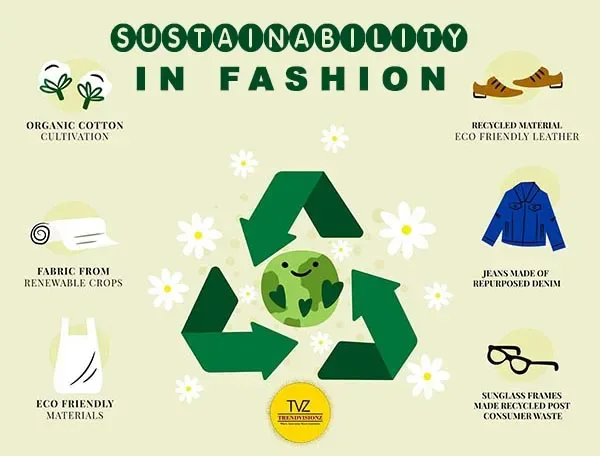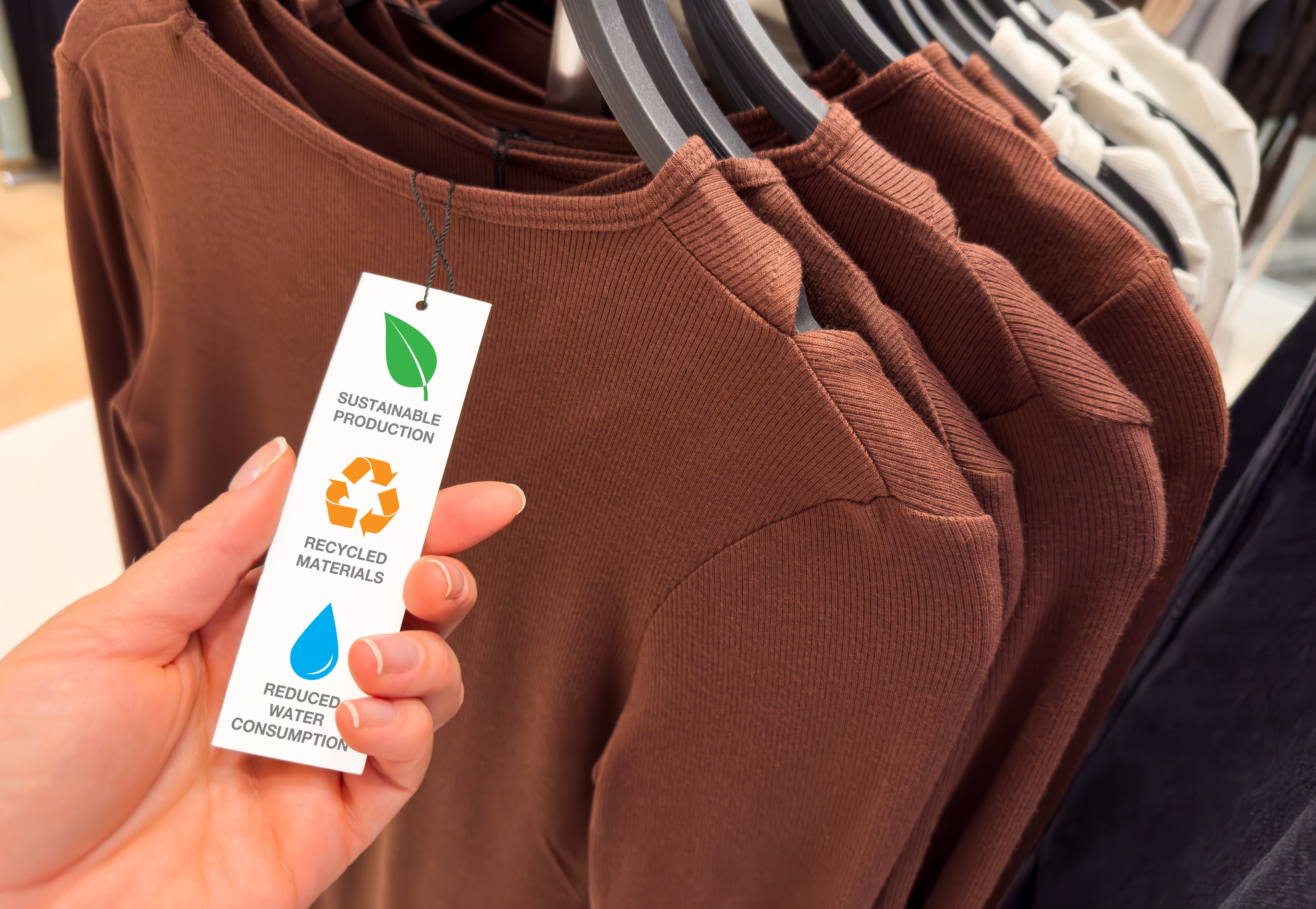How Cape Town Sustainable Fashion is Forming Eco-Conscious Buying
How Cape Town Sustainable Fashion is Forming Eco-Conscious Buying
Blog Article
Keep Ahead of the Contour by Exploring Innovative Style Trends
In a market as dynamic as style, remaining in advance includes even more than just following existing trends-- it requires an exploration of innovation. The merging of technology and style proclaims a new period of customer engagement.

Welcoming Smart Textiles
Over the last few years, the fashion business has actually experienced a transformative change with the combination of smart fabrics, a cutting-edge development that blends technology with textile. This advancement represents not only a fusion of visual appeals and capability however additionally a considerable jump in the direction of sustainability and customization in vogue. Smart textiles, likewise recognized as e-textiles, installed sophisticated electronic devices such as sensors and conductive threads within the textile, making it possible for garments to connect with the user or the setting.
These fabrics are developed to keep track of physical parameters, such as heart price or body temperature level, offering real-time wellness analytics. Beyond health applications, clever fabrics are additionally being used for flexible clothing, which can change shade or pattern in feedback to ecological stimuli, hence using a dynamic style experience.
In addition, the development of energy-harvesting textiles that create power from motion or sunshine is leading the method for self-dependent wearable innovation. This advancement is interesting eco mindful consumers and developers aiming to decrease the environmental footprint of style. As r & d in this area advancement, clever fabrics are expected to become significantly widespread, improving the landscape of modern style with their multifunctional abilities.
The Rise of 3D Printing
Changing the manufacturing landscape, 3D printing has actually become a game-changer in the apparel industry. This innovative modern technology has actually allowed developers to press the borders of creative thinking, creating intricate and tailored garments that were formerly unimaginable. By leveraging electronic style and additive production, 3D printing facilitates the creation of complex geometries and patterns, enabling developers to try out new appearances and structures.
A significant advantage of 3D printing in vogue is its ability to generate on-demand, minimizing waste and minimizing supply needs. This efficiency not only maximizes manufacturing processes however also enables for rapid prototyping, making it possible for designers to bring their visions to life in a shorter timeframe. In addition, 3D printing sustains modification somewhat unparalleled by conventional approaches, using one-of-a-kind designs and personalized fits tailored to individual consumer preferences.
The surge of 3D printing has actually also equalized style, making it obtainable to arising designers that can currently make high-grade items without substantial economic investment in conventional manufacturing facilities. As modern technology remains to breakthrough, the apparel industry is positioned to harness the full possibility of 3D printing, exploring brand-new materials and strategies that will definitely redefine just how fashion is developed and produced.
Lasting Style Innovations
As the garment industry comes to grips with journalism need for environmental responsibility, lasting style advancements have emerged at the center of transformative adjustment. The growing awareness of environmental influence has sustained a change towards even more eco-conscious practices and products. Brands and developers are currently focusing on sustainability, including approaches that decrease waste and decrease carbon footprints.
One significant development is the rise of round style, which emphasizes recycling and upcycling to extend the lifecycle of garments. This approach not just reduces waste but likewise encourages customers to embrace an extra conscious approach to clothing consumption. In addition, making use of lasting materials, such as organic cotton, hemp, and recycled polyester, has acquired grip. These materials call for much less water and energy throughout production, significantly lessening ecological impact.
Another advancement hinges on the fostering of ingenious dyeing strategies that use all-natural dyes or waterless processes, thus lowering the vast amounts of water and chemicals typically used in fabric dyeing. Moreover, developments in biotechnology have brought about the production of lab-grown natural leather and textiles, using eco pleasant and cruelty-free options to standard products. Via these pioneering efforts, the garment industry is making meaningful strides towards an extra lasting future.

Tech-Integrated Clothing
Tech-integrated apparel stands for a cutting-edge fusion of fashion and innovation, reshaping exactly how individuals communicate with their clothes. This cutting-edge domain name is marked by the incorporation of clever fabrics and embedded digital elements, improving both capability and visual appeal. From health and fitness trackers embedded in sportswear to warmed jackets managed via mobile phone apps, tech-integrated garments uses customers extraordinary ease and adaptability.
Introducing brands are driving this trend, concentrating on creating garments that react to ecological stimulations or user commands. For circumstances, some garments can transform color or pattern in action to temperature changes, while others include biometric sensors to monitor health metrics like heart rate or stress degrees. The smooth assimilation of technology right into textiles additionally expands to ecological sustainability, with efforts to develop self-cleaning fabrics or garments that change to weather conditions, thus reducing the requirement for multiple layers.
In addition, the introduction of wearable modern technology is not just limited to apparel but encompasses devices like watches and eyewear, additional broadening the scope click here to find out more of tech-integrated style. As the sector remains to introduce, the possibility for customization and personalization in garments grows, using customers special, tech-enhanced fashion experiences that deal with their specific demands and choices.
Future of Virtual Style
In recent times, the future of online style has actually emerged as a transformative force within the market, leveraging developments in digital innovation to redefine just how fashion is developed, experienced, and taken in. By integrating increased truth (AR), virtual truth (VIRTUAL site here REALITY), and 3D design devices, developers can now craft immersive and interactive experiences that transcend standard fashion limits. Online style permits the creation of garments that exist only in electronic environments, using countless possibilities for development without the restrictions of physical manufacturing.
This electronic change not only offers chances for innovative expression yet also addresses sustainability worries fundamental in traditional fashion techniques. Cape Town Sustainable Fashion. By removing the demand for physical resources, digital fashion minimizes waste and minimizes carbon impacts. Furthermore, the surge of virtual fashion aligns with the enhancing consumer demand for tailored and special experiences, as virtual garments can be personalized and tailored to individual preferences effortlessly

Final Thought
The fashion business's future hinge on the integration of ingenious technologies and sustainable methods - Cape Town Sustainable Fashion. Smart textiles and tech-integrated apparel are boosting functionality, while 3D printing offers opportunities for personalization and waste decrease. Lasting fashion, through environment-friendly materials and round strategies, shows a dedication to ecological stewardship. In addition, virtual fashion is positioned to redefine consumer communications. Adjusting to these trends is necessary for brand names looking for to remain competitive and relevant in this rapidly evolving landscape.
In recent years, the style industry has seen a transformative change with the assimilation of clever textiles, a cutting-edge innovation that mixes innovation with fabric.As the fashion market grapples with the pressing demand for ecological duty, sustainable fashion advancements have emerged at the center of transformative adjustment.In recent years, the future of online style has arised as a transformative pressure within the sector, leveraging innovations in electronic technology to redefine exactly how style is created, experienced, and consumed. The surge of online fashion lines up with the increasing customer need for one-of-a-kind and individualized experiences, as virtual garments can be personalized and tailored to specific choices with ease.
The check this style sector's future lies in the integration of lasting practices and ingenious innovations.
Report this page